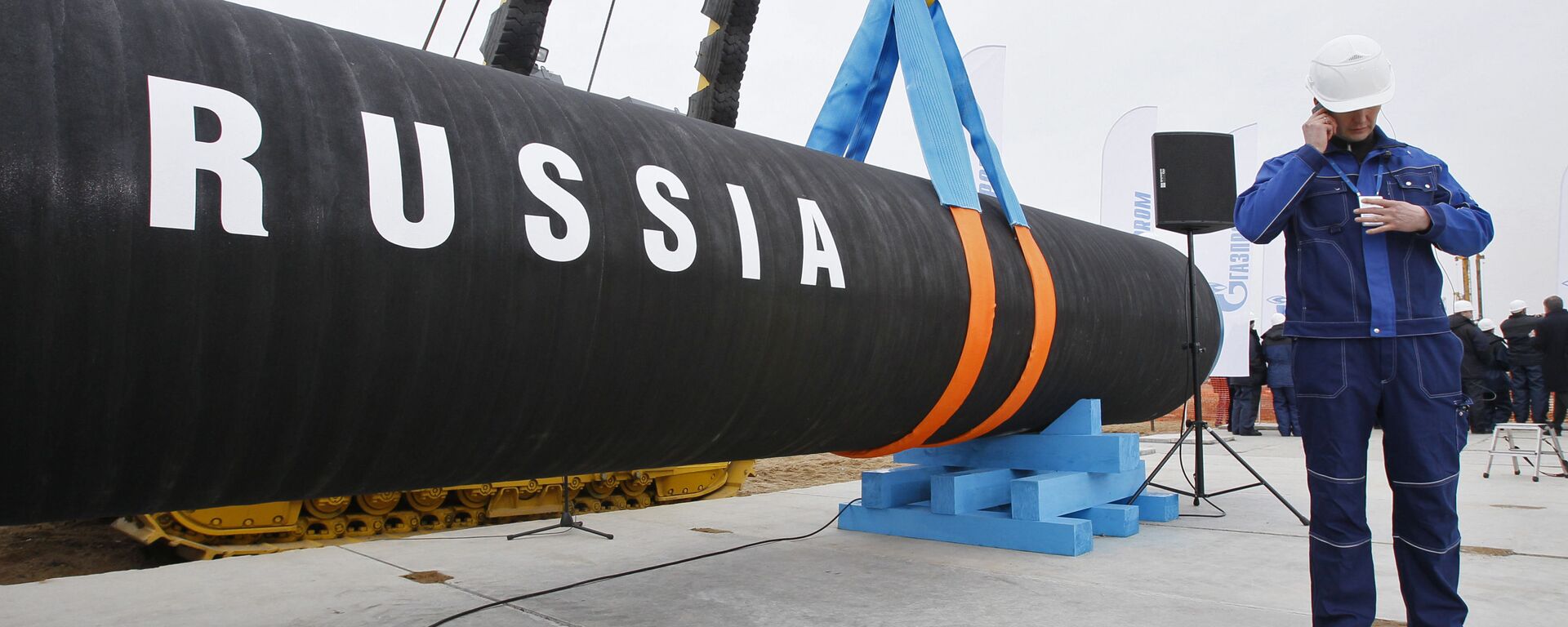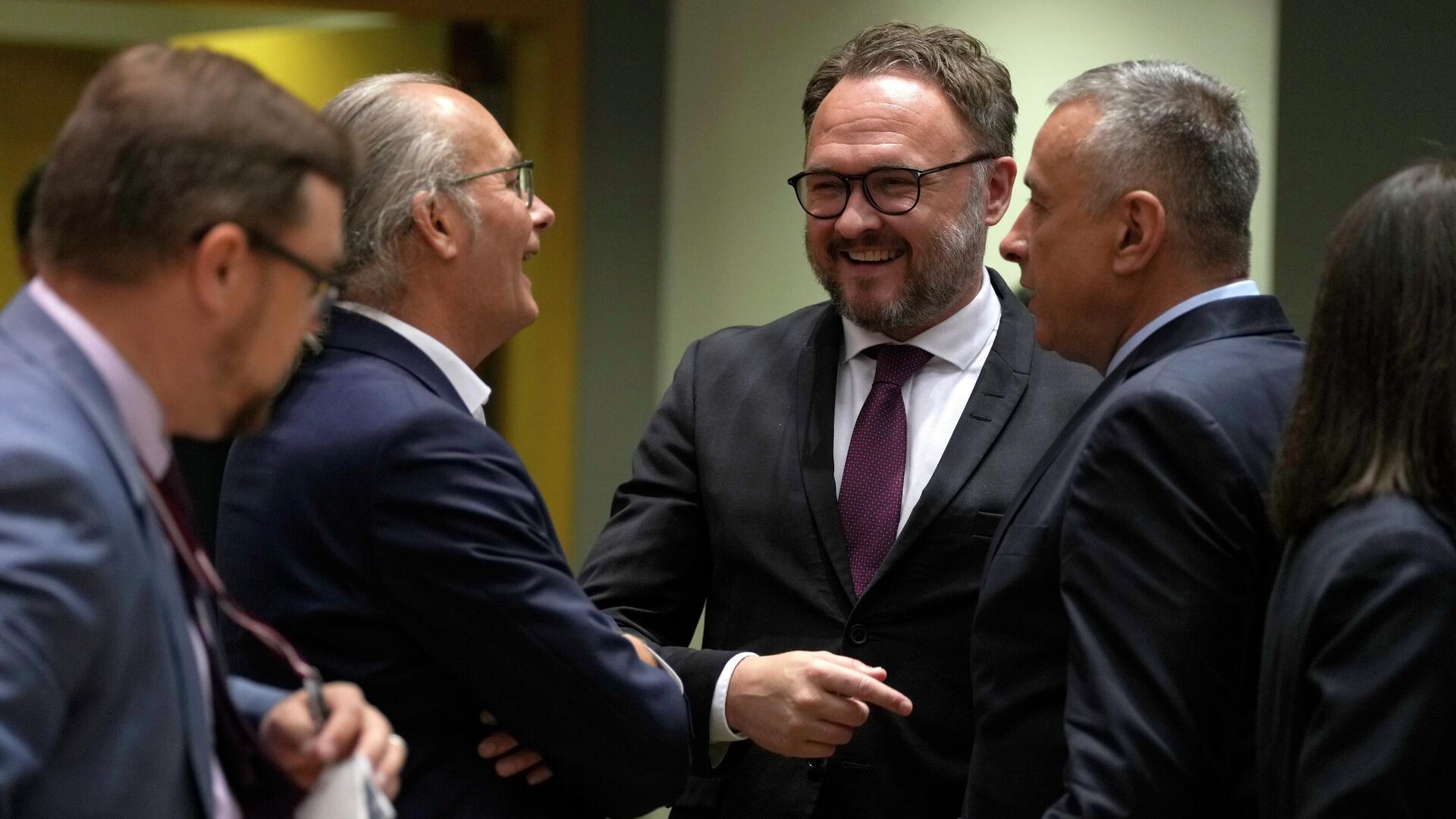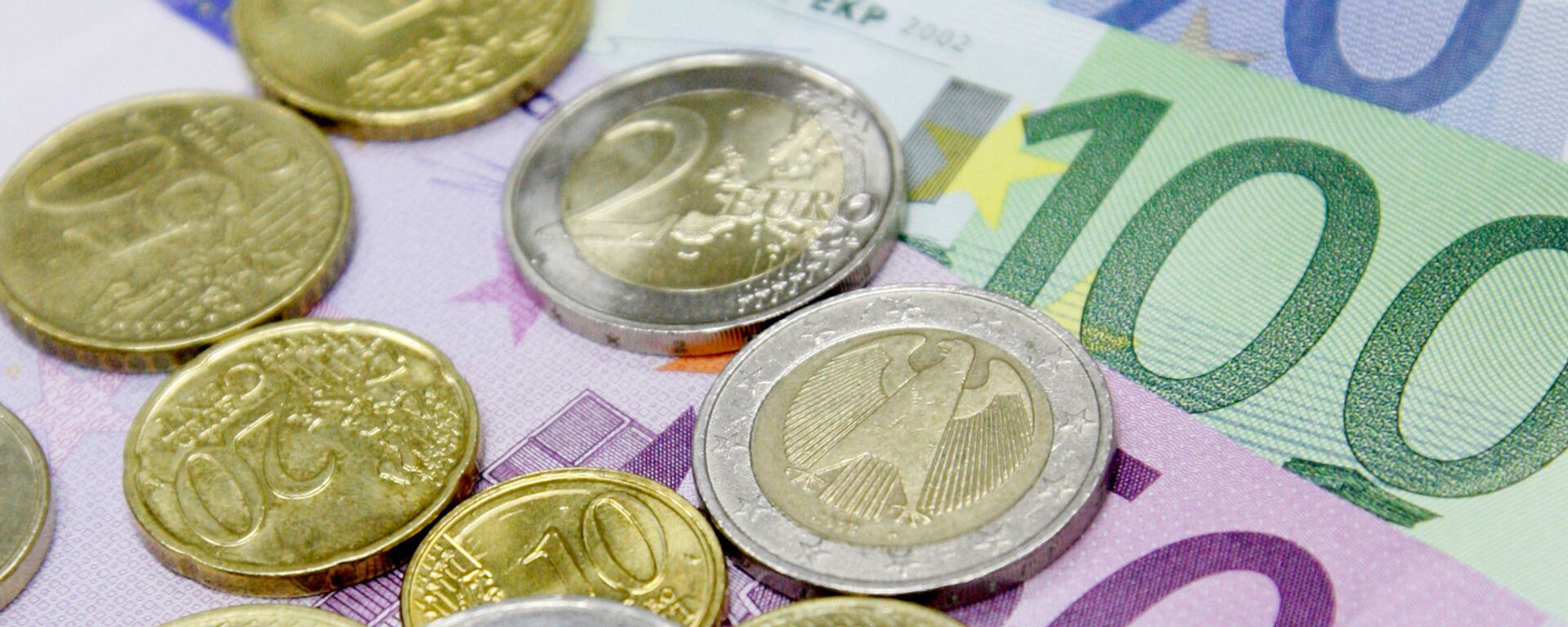https://sputnikglobe.com/20220726/eu-energy-ministers-reach-political-agreement-on-gas-reduction-framework---czech-presidency-1097809753.html
EU Energy Ministers Reach Political Agreement on Gas Reduction Framework
EU Energy Ministers Reach Political Agreement on Gas Reduction Framework
Sputnik International
The developments come amid the ongoing fuel crisis in Europe, which erupted after Brussels slapped a spate of sanctions on Russia, citing Moscow's special... 26.07.2022, Sputnik International
2022-07-26T10:04+0000
2022-07-26T10:04+0000
2023-04-12T17:14+0000
agreement
pipeline
european commission
energy crisis in europe
european union (eu)
https://cdn1.img.sputnikglobe.com/img/07e6/07/1a/1097809936_0:58:2997:1744_1920x0_80_0_0_e7e97cff136c61e40bfbbe81b97769e2.jpg
The European Union member states have reached a political agreement on a voluntary reduction of gas demand by 15% this winter, the EU Council announced on Tuesday.According to the statement, the EU members agreed to reduce their gas demand between August 1 and March 31 "with measures of their own choice".“Whereas all EU countries will use their best efforts to meet the reductions, the Council specified some exemptions and possibilities to request a derogation from the mandatory reduction target, in order to reflect the particular situations of member states and ensure that the gas reductions are effective in increasing the security of the supply in the EU,” the statement pointed out.The document stressed that the EU countries that are not interconnected to gas networks of other member states are "exempted of mandatory gas reductions as they would not be able to free up significant volumes of pipeline gas to the benefit of other member states."In addition, the Council underlined that this regulation is an exceptional measure and will be in force for a limited time.This followed the German news agency DPA citing unnamed sources as saying that the EU’s member states have agreed on an emergency plan to voluntarily reduce gas consumption as a way to reduce dependence on Russian fuel and be prepared for a scenario where imports stop. The sources claimed that the so-called "Save Gas for a Safe Winter" plan, in particular, stipulates a voluntary 15% cut in the consumption of natural gas consumption between August 2022 and March 2023.The developments come after the European Commission proposed a new regulation last week on the coordinated reduction of gas use across the EU as a way to decrease the bloc’s dependence on imports and withstand the spike in prices. The fuel crisis erupted in Europe after the EU imposed sanctions against Russia, shortly after the beginning of Moscow's ongoing special military operation in Ukraine on February 24. The sanctions have led to supply chain disruptions and soaring energy prices across Europe.
https://sputnikglobe.com/20220208/reduction-in-russian-gas-supply-would-be-difficult-to-replace---sp-global-ratings-1092861096.html
https://sputnikglobe.com/20220719/some-european-states-may-see-economic-output-fall-6-if-russia-cuts-off-gas-imf-officials-say-1097527928.html
Sputnik International
feedback@sputniknews.com
+74956456601
MIA „Rosiya Segodnya“
2022
Sputnik International
feedback@sputniknews.com
+74956456601
MIA „Rosiya Segodnya“
News
en_EN
Sputnik International
feedback@sputniknews.com
+74956456601
MIA „Rosiya Segodnya“
Sputnik International
feedback@sputniknews.com
+74956456601
MIA „Rosiya Segodnya“
agreement, pipeline, european commission, european union (eu)
agreement, pipeline, european commission, european union (eu)
EU Energy Ministers Reach Political Agreement on Gas Reduction Framework
10:04 GMT 26.07.2022 (Updated: 17:14 GMT 12.04.2023) The developments come amid the ongoing fuel crisis in Europe, which erupted after Brussels slapped a spate of sanctions on Russia, citing Moscow's special military operation in Ukraine. This has resulted in disruptions of supply chains and skyrocketing energy prices across EU countries.
The European Union member states have reached a political agreement on a voluntary reduction of gas demand by 15% this winter, the EU Council announced on Tuesday.
"In an effort to increase the security of the EU's energy supply, member states today reached a political agreement on a voluntary reduction of natural gas demand by 15% this winter. The Council regulation also foresees the possibility of triggering a ‘Union alert’ on the security of supplies, in which case the gas demand reduction would become mandatory," the Council said in a statement.
According to the statement, the EU members agreed to reduce their gas demand between August 1 and March 31 "with measures of their own choice".
“Whereas all EU countries will use their best efforts to meet the reductions, the Council specified some exemptions and possibilities to request a derogation from the mandatory reduction target, in order to reflect the particular situations of member states and ensure that the gas reductions are effective in increasing the security of the supply in the EU,” the statement pointed out.

8 February 2022, 19:32 GMT
The document stressed that the EU countries that are not interconnected to gas networks of other member states are "exempted of mandatory gas reductions as they would not be able to free up significant volumes of pipeline gas to the benefit of other member states."
"Member states agreed to increase the role of the Council in triggering a ‘Union alert’. The alert would be activated by a Council implementing decision, acting on a proposal from the Commission. The Commission shall present a proposal to trigger a ‘Union alert’ in case of a substantial risk of a severe gas shortage or an exceptionally high gas demand, or if five or more member states that have declared an alert at national level request the Commission to do so," the EU Council emphasized.
In addition, the Council underlined that this regulation is an exceptional measure and will be in force for a limited time.
“It will therefore apply for one year and the [European] Commission will carry out a review to consider its extension in light of the general EU gas supply situation, by May 2023,” the Council said.
This followed the German news agency DPA citing unnamed sources as saying that the EU’s member states have agreed on an emergency plan to voluntarily reduce gas consumption as a way to reduce dependence on Russian fuel and be prepared for a scenario where imports stop.
The sources claimed that the so-called "Save Gas for a Safe Winter" plan, in particular, stipulates a voluntary 15% cut in the consumption of natural gas consumption between August 2022 and March 2023.
The developments come after
the European Commission proposed a new regulation last week on the coordinated reduction of gas use across the EU as a way to decrease the bloc’s dependence on imports and withstand the spike in prices.
The fuel crisis erupted in Europe after the EU imposed sanctions against Russia, shortly after the beginning of Moscow's ongoing special military operation in Ukraine on February 24. The sanctions have led to supply chain disruptions and soaring energy prices across Europe.






